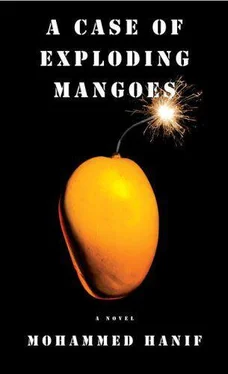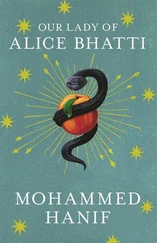As I approach the last pair, I give a sideways glance to the guy on my right, just a deflection of my eyeballs. His hand trembles as he receives the rifle that has just swished past my nose. His right hand is a nanosecond late in his throw, the rifle makes a half-circle in the air and its butt comes at my temple.
Perfect.
Blackout.
If the bastard had delayed it another beat, it would have been the bayonet instead of the butt.
The medical orderlies take off my shoes, remove the sword and loosen my belt. The ambulance is silent. Someone slips an oxygen mask on my face. I give in to the stretcher’s comfort and breathe deeply. I wish I could afford the luxury of passing out but my condition needs to stabilise quickly. I don’t want the overefficient buggers to open my skull.
As my back rests on the white sheets in the sickbay’s special care room, an orderly slips a needle into my arm. A curtain is drawn. The phone is on the other side of the curtain. I feel calm, too calm even to take a reassuring look at it.
I wake up groggy and immediately know they put a sedative in the drip.
Bannon is sitting on a stool at my bedside.
“It’s not about Obaid,” he says. “There’s a plane missing. A whole goddam machine, gone.”
I hope it’s a sedative-induced hallucination, but Bannon’s hand is on my shoulder and he is the only person in the Academy who calls an aircraft a plane.
“An MF17 is missing and they think Obaid took it.”
“What do you think?” I ask him, feeling stupid and sleepy at the same time.
Baby O flew away with a whole aircraft? Emergency procedures for Mushshak, MF17, two-seater, dual-control, propeller aircraft, powered by two hundred horsepower Saab engine: Engine on fire : Cut the throttle. Go into a thirty-degree descent. Trim the ailerons. Look for a field to land in. If the fire continues : Release the catch on safety belt. Eject the canopy. Keep your head down. Climb onto the right wing. Jump.
“Why the right wing?” I had raised my hand in the Emergency Procedures class.
So that you die quicker, came the reply.
There are no parachutes on MF17s.
“The plane is still missing,” says Bannon.
“Who the fuck cares about the plane? It can’t be in the air forty-eight hours after it took off. You put the bloody idea in his head in the first place. Now don’t just sit there, do something,” I shout at him and realise my voice is choked. Must be the sedatives, I tell myself.
“It disappeared off the radar, ten minutes after take-off,” Bannon says in a low whisper.
“Did they scramble the fighters?”
“No, they thought it was a routine training flight,” he says. “Obaid used your call sign.”
General Zia Ul-Haq was rehearsing his special address to the nation in front of a TV camera when the chief of his security, Brigadier TM, entered the room. Brigadier TM’s salute, regardless of the time of the day or the importance of the occasion, was a spectacle to behold. As his foot landed on the thick carpet, the quality of his respect reverberated through the velvet curtains of the Army House’s living room and once again General Zia missed his cue to stop reading from his written speech and be spontaneous. This was the point where he was supposed to push aside the stack of papers in front of him with his left hand, remove his reading glasses with his right hand, look straight into the camera and say: “My dear countrymen, now I want to say something from the heart…” But his right and left hands didn’t seem to be talking to each other. All morning long he had either removed his glasses while still reading or pushed the written speech aside and stared silently into the camera with his glasses still on. General Zia looked at his Information Minister, who watched the speech on a TV monitor with his hands folded at his crotch, nodding enthusiastically at every sentence and every pause. The Information Minister asked the TV crew to leave the room.
Brigadier TM stood still beside the door, his eyes scanning the camera and the monitor the TV crew had left behind. Something in the room was different: the air was heavier, the colours were not as he remembered them from yesterday. “It is a very forceful speech, sir,” said the Information Minister, trying to ignore General Zia’s hostile stare. With General Zia’s decision to confine himself to the Army House after the imposition of Code Red, his Information Minister was suddenly left with nothing to issue as the headline for the evening television news. After two days of recycled footage, he had suggested that General Zia record a special address to the nation.
“This speech is dead. No emotions,” General Zia said. “People will not only think that I am a prisoner in my own Army House, but that I am also suffering from some kind of dementia.”
The Information Minister nodded enthusiastically as if that had been his plan all along.
“And that part about the great threats facing our great nation sounds too poetic. Name those threats; make them more — make them more threatening. The paragraph that says I will not move into the President House because it has blood in its foundations doesn’t make sense. Whose blood? Say something about bloodsucking politicians. Say something about poor people. You do know there are poor people in this country? I am sure you don’t want to become one of them.”
The Information Minister picked up the speech and left the room, without being offered a hand to shake and with nothing to tell the nation in the evening-news bulletin.
“Sit down, son.” General Zia turned towards Brigadier TM and sighed. “You are the only man in this country I can still trust.”
As Brigadier TM sat on the edge of the sofa he immediately realised that the seat under him was also unfamiliar, deeper and softer.
General Zia’s overall security was the responsibility of General Akhtar and his Inter Services Intelligence, but the man picked to ensure his personal safety was Brigadier TM, a barrel of a man, actually a barrel-full-of-suspicions of a man who had been Zia’s shadow for the past six years. His team of armed commandos formed a ring around General Zia’s office and living area and then concentric circles around that ring in a two-mile radius. For a further three miles the job of maintaining security fell to ordinary army soldiers. Outside this circle stood the civilian police, but nobody expected them to do much except stop traffic and baton-charge any enthusiasts trying to get a glimpse of General Zia’s convoy. This five-mile circle was ready to move at very short notice, keeping General Zia in the centre, but ever since he’d cancelled all public engagements that might take him out of the Army House, Brigadier TM’s focus of suspicion had become the Army House itself.
When General Zia saw him for the first time TM was a major and a speck in the sky, leading a formation of paratroopers jumping out of a Hercules C13O at the National Day Parade. The speck bloomed into a green-and-white parachute and TM, manoeuvring his parachute’s cord-controls, landed in the one-metre circle marked with white chalk right in front of the dais from which General Zia was inspecting the parade. Commissioned in the military at a time when parachutes were still an exotic entity, General Zia was fascinated by TM’s precision landing. He stepped down from the dais, hugged TM and told him to stick around for the post-parade party. TM was at his back when General Zia went along the reception line of ambassadors and other foreign dignitaries. Then General Zia stepped outside the VIP area and went ‘mingling with the milling crowds’ on the Information Minister’s suggestion. The minister had already dictated the headline to state television and was now obliged to make it happen. The crowd with which Zia mingled comprised an all-male congregation of primary-school teachers, court clerks, office peons and government bureaucrats’ domestic staff, ordered here by their bosses. Many in the crowd were soldiers in civvies bussed in from the neighbouring cantonment. With TM at his side, General Zia felt that the crowd suddenly became more disciplined. TM’s towering, bulky presence made Zia forget his old habit of looking around, scanning the crowd for anyone who might fling a stone or hurl abuse at him. Brigadier TM navigated the crowd effortlessly, his elbows working like the oars of a skilled rower as if the milling crowd was nothing but dead water in a still lake.
Читать дальше












